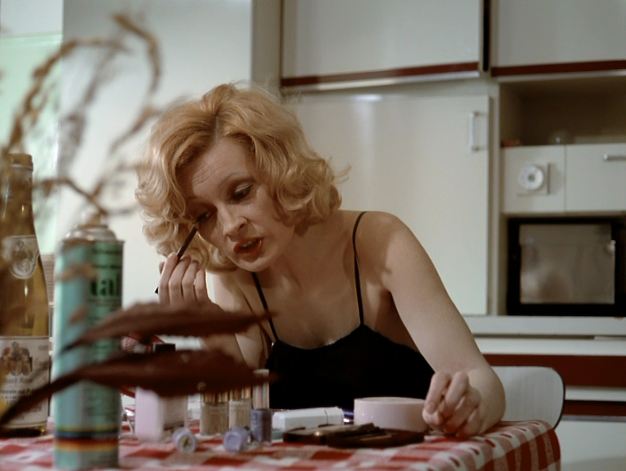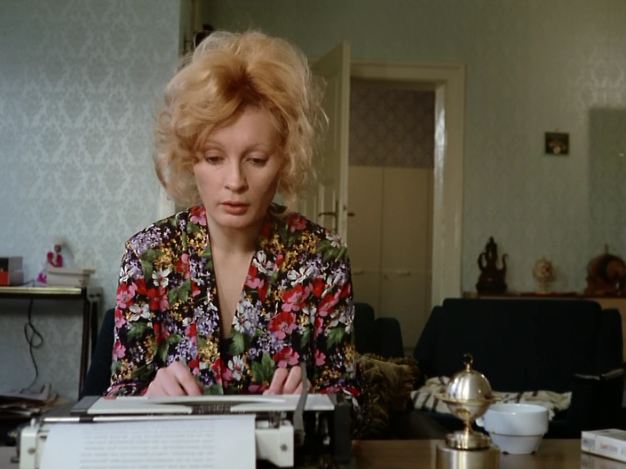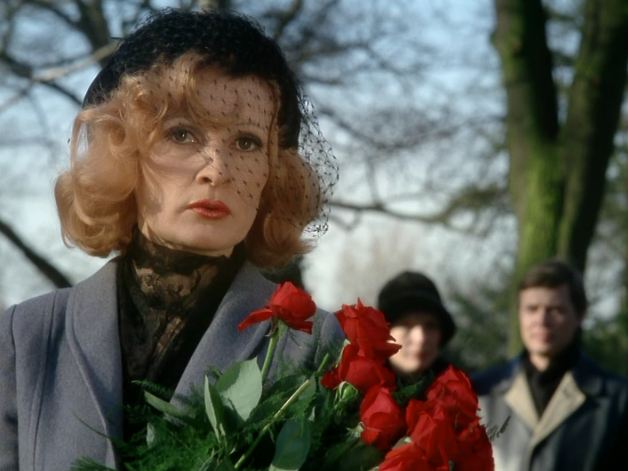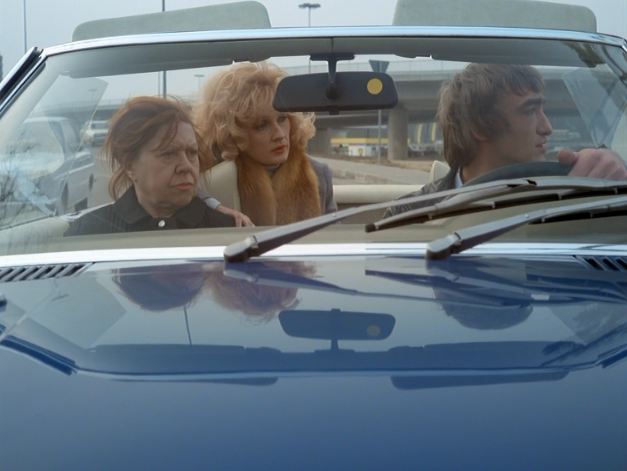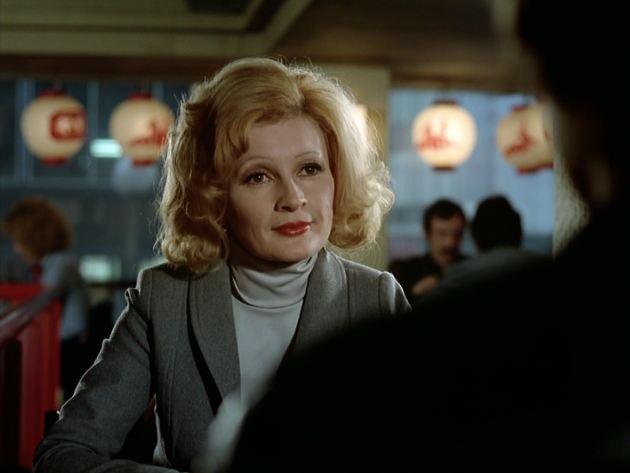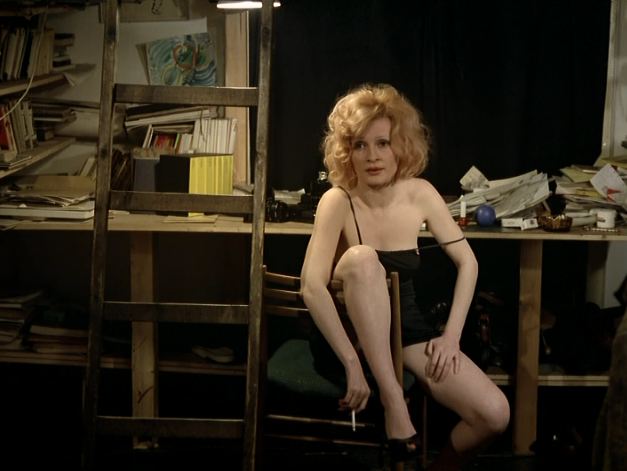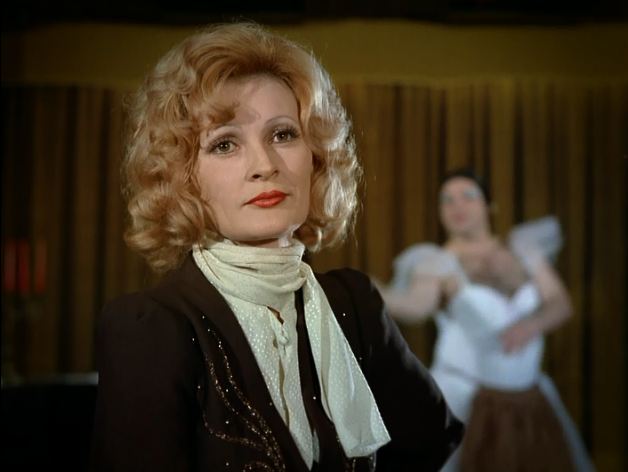Meanwhile, on the other side of town, Ingrid Caven (surely not playing a prostitute?) receives the bad news of her father’s death in the unlikely setting of the nightclub where she is a hostess. Although Corrina and Frau Kusters don’t get on, their relationship is deep and tender and Caven makes it so with her weariness; her beauty; her sarcasm; and a suggesting that she is tired, tired of everything.
Sometimes in Fassbinder’s films, the actors don’t change their roles much, but I find that on balance, Ingrid Caven is one of the ones who is offered and who plays parts of different tone — despite as I’ve said, her being asked to play the prostitute on more than one occasion.
Here she is aloof, ambitious, driven and greedy – the way she tilts her head demonstrates this. There are a few first rate ‘women on airport travellator’ shots in cinema, but Ingrid Caven outdoes Jackie Brown for me every time (she’s also going a hell of a lot faster).
There are two great Ingrid Caven and Gottfried John romantic double acts in Fassbinder – there is one in this film, and another when she gets off with the hilarious Anton Saitz in In a Year With 13 Moons. The love affair in Mother Kusters Goes to Heaven is the full deal however and the characters are made for each other; loveless, intelligent, uncaring, a match made in Frankfurt.
Viewed in the rear view mirror of the car, all windy-wigged and promising, Ingrid Caven begins the flirting early. What she does is bring the story to the level of the animal world; when we are talking about her dead father, and politics, none of it seems to matter. In fact, the grief from here on in is reduced to either pre-sex love chat, or sensational story telling in the press. Brilliantly, Ingrid Caven as Corinna Coren tries to launch her singing career on the back of the death of her fast becoming infamous father.
Can anyone ignore how well Ingrid Caven works with Armin Meier, in a small working-class flat, brother dresses sister scenario? It is essential Caven; dressing for a funeral; erotic, ladylike and precise. And with her brother. There is a kitchen sink quality to her character in this that makes it all the funnier, because we see the public and the private woman, interchanging quickly before our eyes. She is interviewed by the press in a short but enjoyable strolling scene, circled by the photographers, including gawky Volker Spengler. Then she is in the household, where the family bicker, work, feed and dress.
Ingrid Caven’s character in Mother Kusters Goes to Heaven is perfectly cynical and you feel a long and unpleasant back story there somewhere, in the way she doesn’t care about the press, arguing that it’s their job to create a sensation, and that they have the right to earn a living doing so – further justified by the fact that although the stuff written about Hermann Kusters may be lies, people forget it as soon as they read it, anyway.
When Caven comes to sing in the club it is an initially miserable performance, but she is the daughter of a murderer so it almost doesn’t matter. It is a very traditional performance, out of date you might say, especially in the rocking 70s, but this is what people like – it appears even the young people in the audience.
And hearing Ingrid Caven sing is always a treat in and of itself, never to be missed. She has so many qualities that have developed over the years, that she brings stories to the stage, that emerge one way or another.

